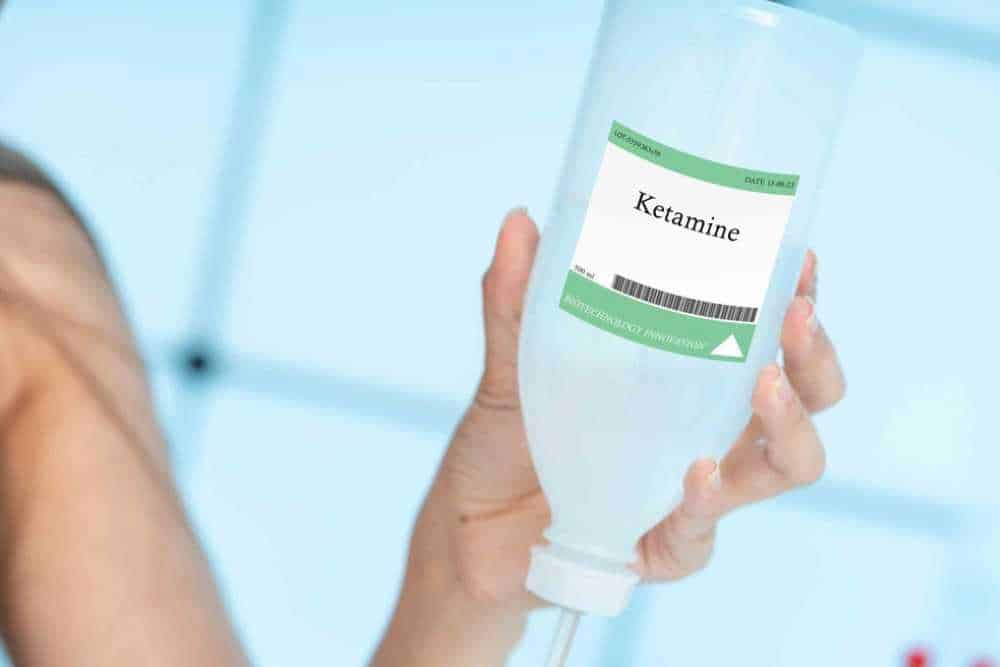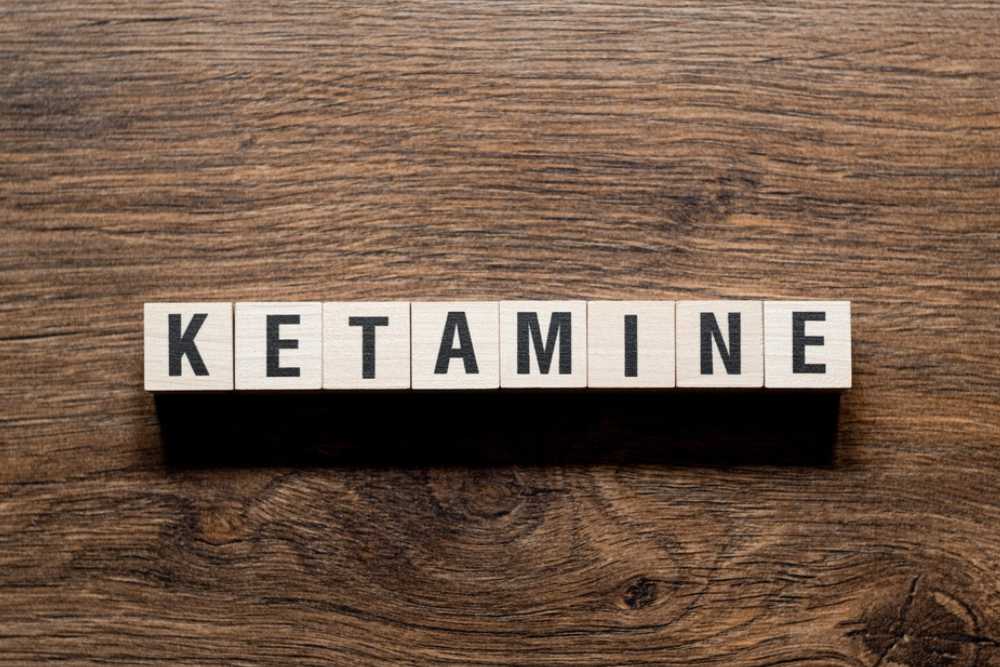We Accept Most PPO Insurance Policies
All calls and submitted forms are 100% confidential. Insurance could completely cover the cost of treatment




Ketamine is a medication originally developed as an anesthetic for surgery. However, previous research shows that ketamine may have additional therapeutic qualities, including treatment for pain management, depression, and post-traumatic stress disorder (PTSD). If you’re considering ketamine therapy for the treatment of a mental health concern in California, the good news is that there are ketamine treatment centers in Fullerton, CA, that can help.

Just like all medications, ketamine has the potential for both short and long-term side effects. Ketamine is categorized as a Schedule III substance under the United States Drug Enforcement Administration’s (DEA) Controlled Substances Act, which means it has a moderate potential for being abused and is illegal to use without a doctor’s prescription. Using it under a doctor’s guidance will help lower your risk of overdosing and any long-term side effects.
Common short-term side effects associated with ketamine include:
Ketamine should not be used with many other medications, and has a moderate potential for dependence and abuse, which is why it should only be used when prescribed under a doctor’s care.
How Does Ketamine Work?
According to the National Institutes of Health (NIH), ketamine—formally known as ketamine hydrochloride—was initially approved by the U.S. Food and Drug Administration (FDA) as a general anesthetic. A general anesthetic is a drug that helps a person sleep during a surgical procedure so they feel no pain.
N-methyl-D-aspartate (NMDA) is a type of brain receptor that plays a vital role in mood regulation. According to a recent study, previous research has linked NMDA receptors to mood disorders like depression. Ketamine is an NMDA receptor antagonist, which reduces the activity of those receptors in the brain, potentially providing anti-depressant effects.
What Mental Health Conditions Is Ketamine Used to Treat?
In addition to being used as a general anesthetic, in 2019, the FDA approved a ketamine nasal spray called Spravato®—made by Johnson & Johnson—specifically for the treatment of treatment-resistant depression. Esketamine is a drug made from ketamine.
Ketamine is currently being used off-label to treat other types of depression, as well as PTSD and other anxiety disorders, bipolar disorder, and chronic pain management. Off-label means a doctor prescribes a medication for a use that it is currently not officially approved for.
Ketamine treatment centers in Fullerton, CA, generally do not use ketamine-assisted therapy for military PTSD as a first treatment. It is normally considered an option for people who do not respond to traditional therapies for depression, PTSD, and other mental health issues.
According to a study published in the journal World Psychiatry, treatment-resistant depression is defined by a person not having an adequate response to at least two types of antidepressants. The study states that at least 30% of people with depression are treatment resistant.
Similarly, treatment-resistant PTSD occurs when a person does not respond well to conventional therapies and medications. According to the NIH, about 33% of people with PTSD have the treatment-resistant form.
Also known as Ketamine Infusion Therapy (KIT), this type of therapy is often used in conjunction with other non-pharmaceutical mental health therapies, such as:
Who Should Not Try Ketamine Therapy?
It’s important to note that ketamine is not for everyone—your mental health professional will evaluate whether ketamine is right for you based on your current health status and medical record. You are not a good candidate for ketamine-assisted therapy if you have:

Living with a mental health issue can be very challenging and take a toll on your quality of life. It can be very frustrating and disheartening if traditional therapies and medications do not provide you with any help. Plus, leaving depression and PTSD untreated can lead to a host of complications. For this reason, people are seeking ketamine treatment centers in Fullerton, CA, more than ever before.
There are many risks associated with treatment-resistant depression and PTSD, such as:
Treatment-resistant PTSD and depression can also increase your risk for other health conditions, including:
How Effective is Ketamine Therapy?
Ketamine-assisted therapy for depression and other mental health issues is growing in popularity, as many people can feel relief within just a few hours of treatment, rather than a few weeks, compared to traditional medications.
Additionally, past studies show how effective ketamine therapy can be for off-label treatment of PTSD and depression. A study published in the journal Clinical Neuropsychiatry found that ketamine therapy can improve PTSD symptoms as early as 24 hours after the first infusion.
And other research published in the Journal of Affective Disorders reported that 52% of study participants with severe depression experienced a decrease in their symptoms after three ketamine transfusions over 11 days.


In most cases, ketamine therapy is used in conjunction with other more traditional mental health treatments, as they complement each other very well. For example, because ketamine can cause a calming and relaxed effect, it can help a patient’s brain “loosen up” and make it easier for them to both talk about their current problems and be more receptive to ideas during talk therapy sessions.
Ketamine also helps the brain create new neural pathways and connections, which can help with healing mood disorders. And ketamine can be used in tandem with some traditional depression and PTSD medications, such as:
Because ketamine works in a much different way than traditional mental health drugs, it can enhance how the usual drugs work.

Ketamine is a medication originally developed as a general anesthetic.
Ketamine is currently FDA-approved to treat treatment-resistant depression. It is also being used off-label to treat other types of depression, PTSD, bipolar disorder, and other mental health issues.
As ketamine has a moderate potential for being abused, it should only be used under the direction of your mental health care provider.
Ketamine is normally not a first-line treatment, but instead is brought in conjunction with traditional therapies and drugs if they are not effective on their own.
Ketamine is not for everyone—your doctor will evaluate whether ketamine is right for you based on your current health and medical history.
Ketamine-assisted therapy available through Moment of Clarity’s treatment centers can be an excellent solution for people struggling with treatment-resistant depression and PTSD. With six locations serving Los Angeles, Orange, and Riverside Counties, our ketamine therapy can help boost the power of traditional therapies and medications to make them more effective. And we can help keep you from running the risk of the many complications that can come from untreated mental health issues.
If you or a loved one needs a ketamine treatment center in Fullerton, CA, call Moment of Clarity today at 949-625-0564.
United States Drug Enforcement Administration — Drug Scheduling
National Institutes of Health — StatPearls: Ketamine
Progress in Neuro-Psychopharmacology and Biological Psychiatry — The role of NMDA receptor in neurobiology and treatment of major depressive disorder: Evidence from translational research
Johnson & Johnson — SPRAVATO® (esketamine) approved in the U.S. as the first and only monotherapy for adults with treatment-resistant depression
World Psychiatry — Treatment-resistant depression: definition, prevalence, detection, management, and investigational interventions
National Institutes of Health — Treatment for Posttraumatic Stress Disorder in Military and Veteran Populations
Clinical Neuropsychiatry — Effectiveness of Ketamine for the Treatment of Post-Traumatic Stress Disorder – A Systematic Review and Meta-Analysis
Journal of Affective Disorders — Clinical outcomes in the biomarkers of ketamine (Bio-K) study of open-label IV ketamine for refractory depression